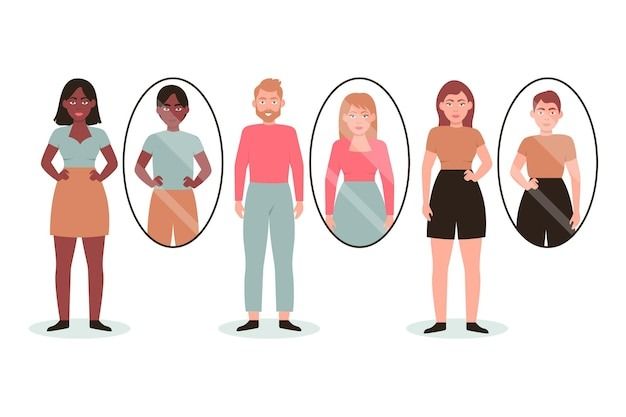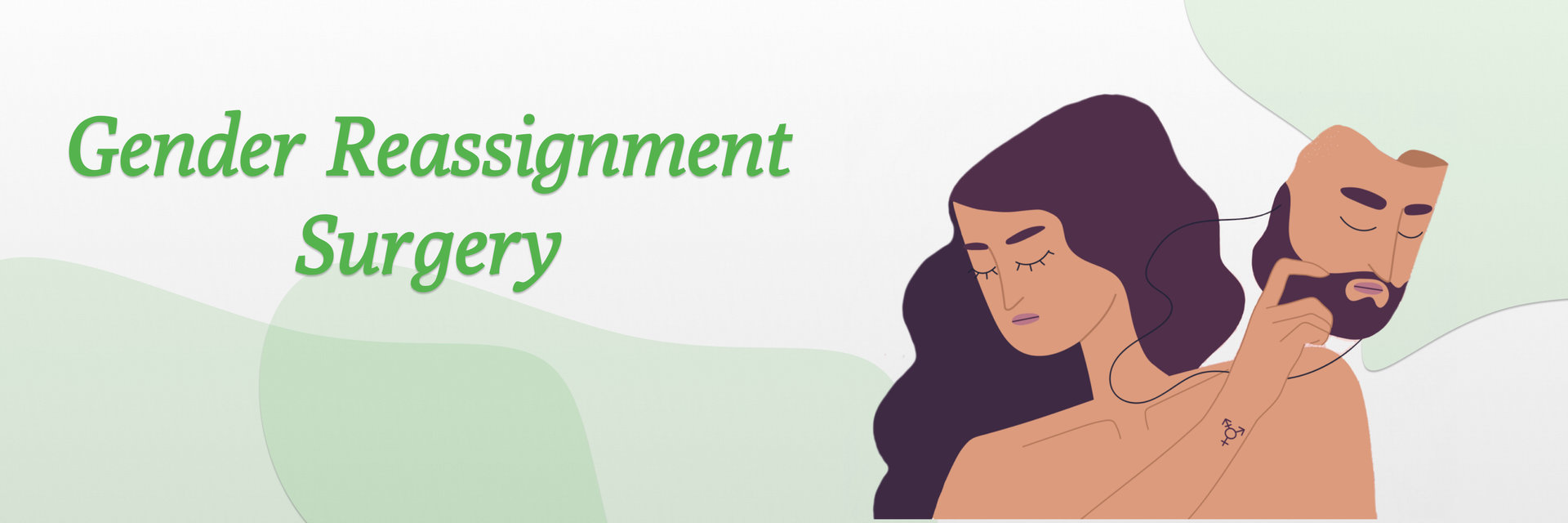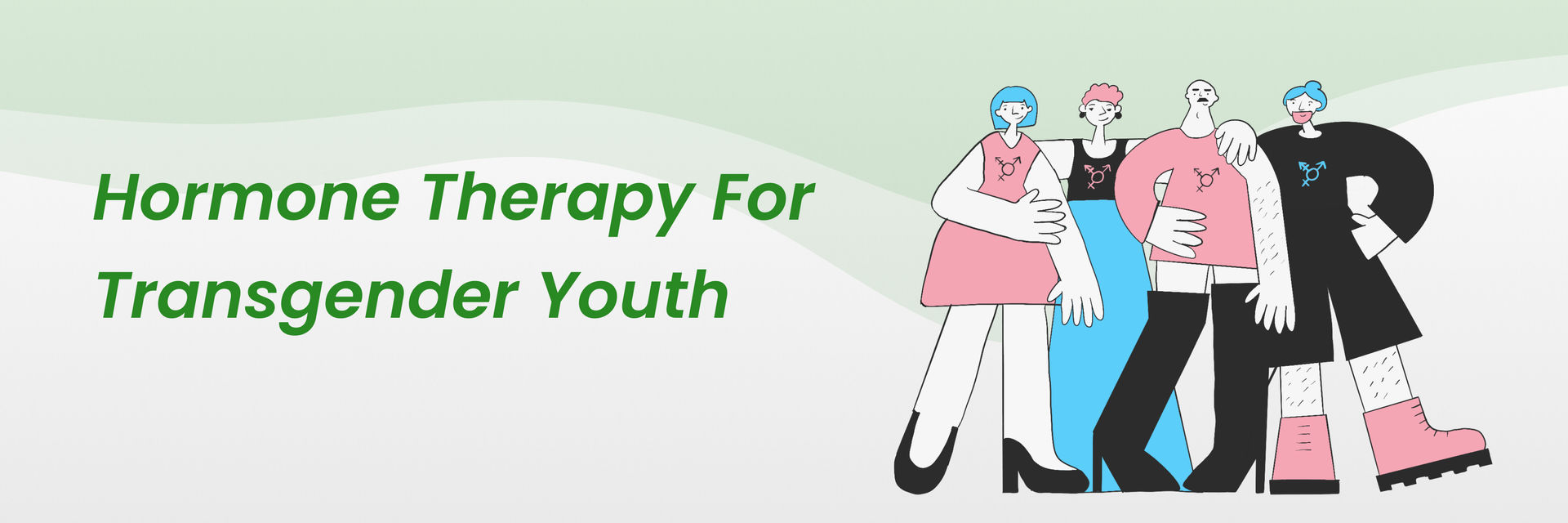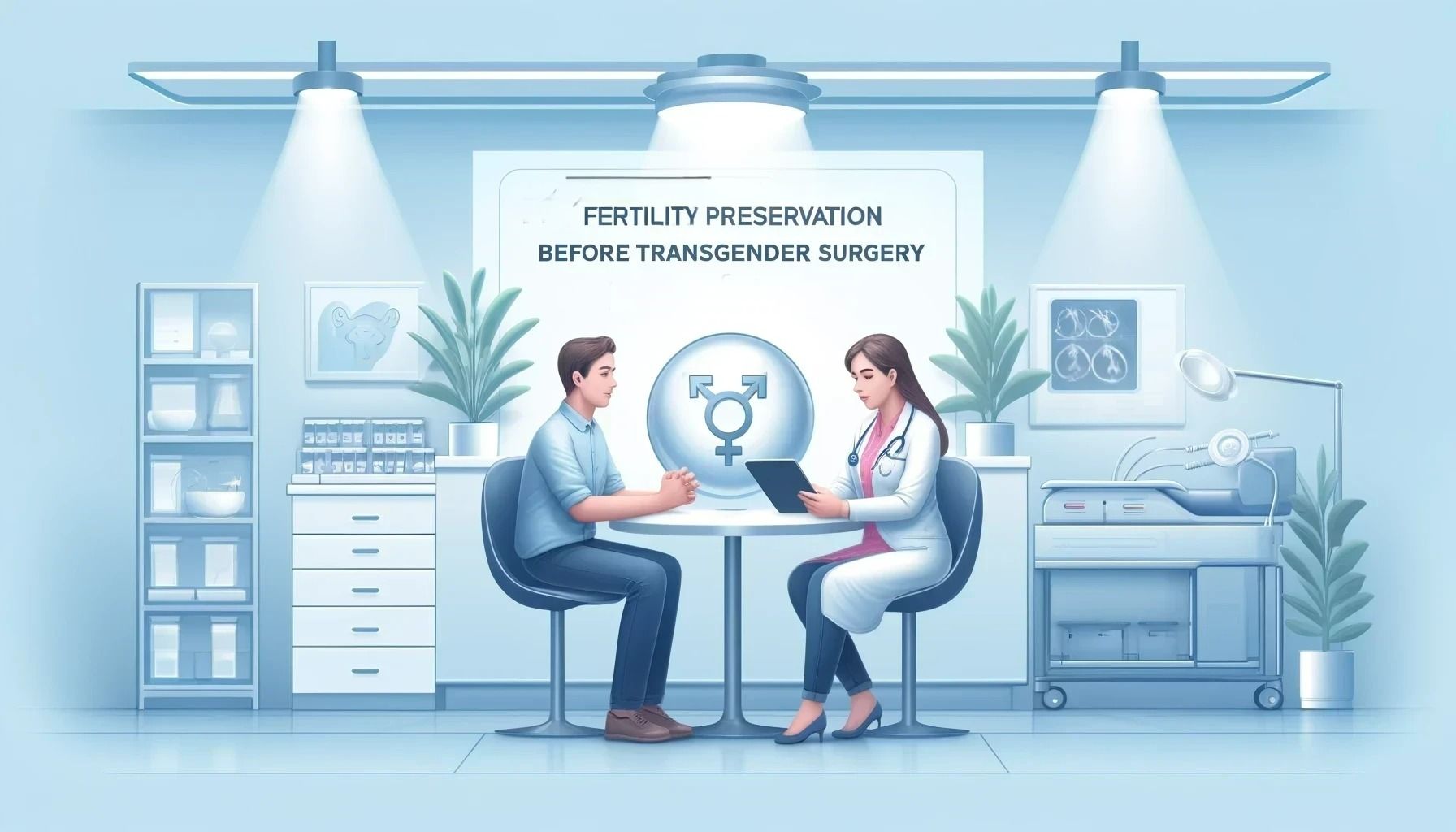Overview
A transgender woman is someone who feels that they are a woman inside, even though they have a male body. This mismatch between how they think and their physical body can cause significant discomfort, known as gender dysphoria. Male-to-female (MTF) transition helps transgender women change their appearance and social role to match their female identity. Thankfully, there are many ways to support this journey today, including medical treatments and social or legal status changes.
You may be curious if transitioning after 40 is usual or not.

Dr. Vinod Vij reflects, “In today’s world, it is not only normal but increasingly common. With greater societal acceptance and continuous medical advancements, more people choose to transition later in life." He explains that many individuals are ready to transition at this stage, often after achieving stability in other aspects of their lives or finally feeling free to embrace their true identity.
This highlights that the desire to live authentically transcends age. Interestingly, about 27% of transgender people start their transition after the age of 40. This shows that it’s never too late to begin living as your true self. Some surveys show that 1 out of every 4 transgender or non-binary people choose to have gender reassignment surgery after 40
But transitioning after 40 requires thoughtful planning and the right support. Transitioning from male to female after 40 brings its own different set of experiences, challenges and opportunities. This blog will provide helpful tips, and essential information to guide you through this meaningful journey.
For expert guidance on transitioning, schedule a consultation with a Plastic surgeon who is expert in transgender surgery today to explore your options and receive personalized support.
Decide after analyzing the pros and cons of having the surgery!! Read ahead to know more!
What are the pros and cons of male-to-female surgery after 40?
There are pros and cons related to every decision of yours. Similarly, there are pros and cons for male and female surgery at all ages. We will particularly talk about the pros and cons of having male-to-female transition after 40.
The pros and cons of getting male-to-female surgery after 40 are:
| Benefits | Risks |
|
|
|
|
|
|
| Improved physical appearance and function |
|
Eligibility and exceptions of male-to-female surgery after 40?
The eligibility criteria for male-to-female transition surgery after 40 is determined by the consulting doctor after assessing your case.
The factors which decide whether you are eligible for MTF Surgery after 40 are:
- Overall Health
- Medical history and associated risks
- If, after the assessment, the doctor feels that you are physically fit to undergo the surgery, then only you can have the transition surgery.
- Additionally, to be eligible for male-to-female surgery after 40, you have to clear a psychological assessment. The test will assess if you have gender dysphoria, whether you are mentally prepared for the surgery, and the emotional changes associated with it.
Is surgery the only option? Look at what other options are available for you!
MTF Transition after 40- Treatment Options to Consider
Having surgery is one of the few options for male-to-female transitions after 40.
You may choose not to have surgery and go for other available options for gender reassignment.
Based on your age, medical health and preferences, you may choose any of the following treatment options:
- Hormone therapy- This is done to induce feminine characteristics like voice change, development of secondary sexual characters, female breast growth
- Surgical procedures like facial feminization surgery, which includes forehead and jaw surgery, breast augmentation, vaginoplasty, and voice feminization for voice dysphoria, help in getting you a more feminized body.
Risks and Complications
The male-to-female transition surgery is a very complex procedure, and there are numerous risks and complications associated with it, particularly for individuals over 40.
The risks and complications associated with MTF Transition after 40 are:
Infection:
- Post-Surgical Infections: Infections can occur at the surgical sites, including the genitals and areas where procedures like breast augmentation or facial feminization take place.
- Managing Infection: Follow post-operative care instructions closely and watch for signs of infection, such as redness, swelling, or fever.
Bleeding:
- Excessive Bleeding: Surgeries can lead to significant blood loss during or after the procedure, especially in individuals over 40, due to age-related changes in blood vessels and healing ability.
- Prevention and Management: Proper pre-operative assessments and surgical techniques help minimize this risk. Close monitoring during recovery is essential.
Anesthesia Complications:
- Reactions to Anesthesia: Older individuals are more susceptible to adverse reactions to anesthesia, such as breathing problems, blood pressure fluctuations, or allergic responses.
- Pre-surgical Evaluation: Doctors need to thoroughly evaluate your health to determine the best anesthesia plan and address any special requirements.
Slower Healing:
- Prolonged Recovery Time: Healing can take longer as you age, leading to extended recovery periods and delayed return to normal activities.
- Enhanced Care: Ensure adequate rest and proper nutrition, and follow medical advice to support a smoother recovery.
Cardiovascular Risks:
- Increased Cardiovascular Strain: Surgery and hormone therapy can strain the heart and circulatory system, particularly if you have pre-existing cardiovascular conditions.
- Monitoring and Management: Regular monitoring and effective management of cardiovascular health are crucial before and after surgery.
Hormone Therapy Side Effects:
- Hormonal Imbalance: Starting or continuing hormone therapy after 40 can lead to side effects like mood swings, changes in libido, or increased risks of blood clotting due to long-term estrogen use.
- Regular Check-Ups: Frequent medical check-ups are necessary to monitor hormone levels and adjust dosages as needed.
Psychological Impact:
- Mental Health Concerns: Transitioning later in life can present unique psychological challenges, including managing expectations, societal perceptions, or personal identity issues.
- Support Systems: Access to mental health support and community resources is vital for navigating these challenges effectively.
Chronic Conditions:
- Pre-existing Health Conditions: Many older adults have chronic health conditions like diabetes or hypertension, which can complicate surgical outcomes and recovery.
- Comprehensive Health Management: Collaborate with specialists to manage these conditions effectively during your transition.
Skin Elasticity and Healing:
- Reduced Skin Elasticity: Older skin may not heal as quickly or as effectively as younger skin, affecting the outcomes of surgeries like breast augmentation or facial feminization.
- Tailored Surgical Approaches: Surgeons may need to adapt their techniques for skin and tissue quality changes.
Potential for Surgical Revisions:
- Need for Additional Procedures: You may require follow-up surgeries or revisions to address issues like scarring, asymmetry, or implant adjustments.
- Planning for the Future: Prepare for the possibility of additional procedures and discuss these potential needs with your surgeon in advance.
Are you all tensed up and thinking of not undergoing mtf transition after reading about the risks?
Hold on! The success rates may change your decision!
MTF Transition after 40: Success rates
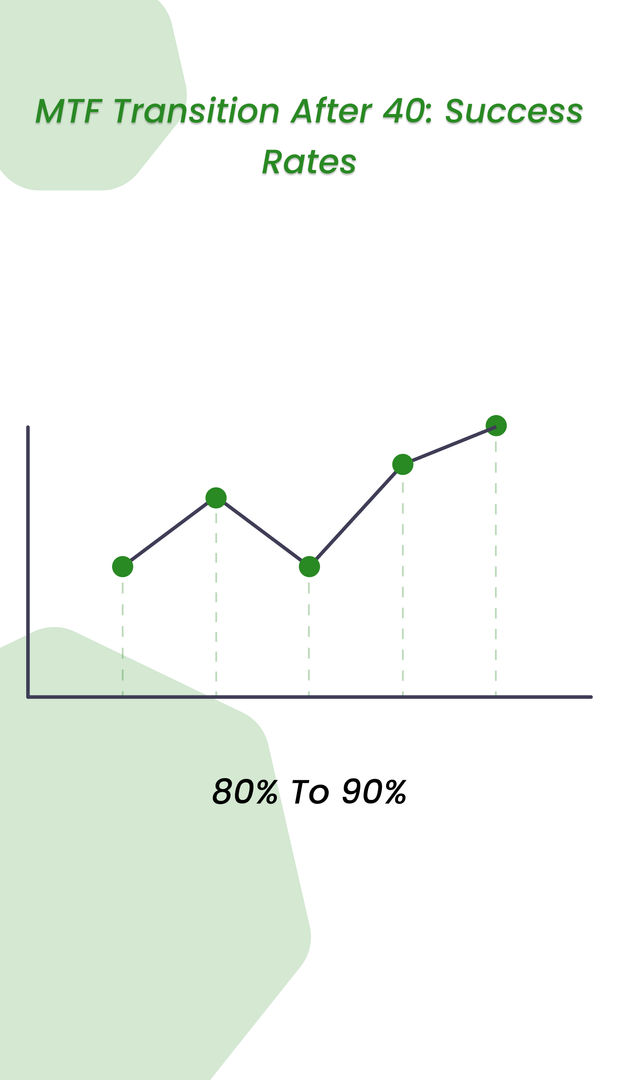
The success rates of male-to-female transition after 40 are 80% to 90%.
MTF Transition after 40- About Recovery

This is a complicated procedure and recovery will happen faster if you follow all the post-surgery instructions and go for regular follow-ups.
Dr. Nick Bach, (Psy.D. - Doctorate of Psychology) of Grace Psychological Services also supports this and adds,
“Follow all instructions given to you by your surgeon regarding wound care, pain medication, activity level, etc.”
MTF Transition after 40: results
The male-to-female transition surgery after 40, or any other age, may result in the following outcomes:
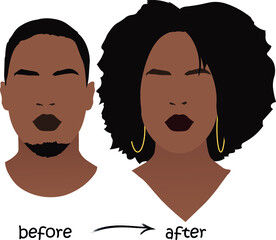
- More feminine facial features
- Feminine chest appearance with round, fuller breasts
- Creation of a functioning female vagina capable of sexual intercourse gives a complete sense of feminization
- More feminized body shape with wider hips, narrow waist, and rounder buttocks.
Things to consider before male-to-female transition after 40
- The University of California reports that beginning hormone therapy may increase the risk of blood clots, heart attacks, diabetes, and cancer in individuals over 40.
- It's possible that applying a patch to your epidermis and ingesting estrogen this way is better than using other hormone treatment methods.
- If a transsexual woman is over 50 and still has testicles, a doctor may advise that she only use testosterone blockers or lesser estrogen doses.
- The use of testosterone blockers can be discontinued by people who have had an orchiectomy. But until they turn 50, they should continue taking low amounts to lower their risk of developing osteoporosis.
Here are some fast facts about MTF Transition surgery after 40
| Success Rate | Recovery Time |
| 80%-90% | 2 weeks - 4 months |
Still confused if you should go for mtf transition before or after 40?
To help you make a better and a more informed decision, we have prepared a table below highlighting the major differences between mtf transition before and after 40.
This can help you better evaluate your decision and help you make the right choice!
MTF Transition Before V/s After 40
Aspect of Transition | Before Age 40 | After Age 40 |
| Hormone Therapy | Being more responsive to estrogen generally leads to more significant physical changes. | May require higher doses of estrogen to achieve similar results and may experience less dramatic changes. |
| Facial Hair Removal | Easier to remove hair permanently or semi-permanently | May require more extensive hair removal procedures and may have more difficulty achieving permanent hair removal |
| Voice Feminization | May have an easier time training the voice to sound more feminine | It may require more dedicated training and practice to achieve a more feminine-sounding voice |
| Body Shape | May experience more significant changes in fat redistribution and overall body shape | May experience less dramatic changes in body shape due to factors such as reduced skin elasticity |
| Emotional and Social Support | May have more support from peers and family due to transitioning at a younger age | May have more difficulty finding support and understanding from peers and family due to transitioning to an older age |
Conclusion

There is no one "ideal" age for male-to-female (MTF) transition, as the decision to transition is a personal one that depends on various individual factors. Some people may feel ready to transition at a younger age, while others may not feel comfortable doing so until later in life.
Transitioning is feasible regardless of age. No age restriction exists on when a person can socially and physically transition. However, a doctor may consider certain factors before suggesting certain changing treatments.
In general, it is recommended that individuals undergo hormone therapy and other transition-related treatments as early as possible to maximize the physical changes that can be achieved. However, it is never too late to begin transitioning, and many people successfully transition later in life.
Are you above the age of 40 and planning for a mtf transition and wish to be one among those who have had a successful transition later in life?
To ensure that medical shifting is the best course of action for a particular person, it is crucial to weigh the risks and benefits of specific transitioning procedures, such as hormone treatment and surgical procedures.
Have some more questions related to mtf transition after 40?
Then do not miss reading the below FAQs.
You might get an answer to your question!
FAQs
How can I find a doctor who understands MTF transition for people over 40?
Look for specialists in transgender health or endocrinologists with experience with older adults. Transgender support groups or clinics focused on LGBTQ+ health can also provide recommendations.
What emotional support is available for those transitioning after 40?
Therapy or counselling with professionals experienced in transgender issues can be very helpful. Joining support groups, both in-person and online, can also offer valuable community and understanding.
How do hormones affect older individuals compared to younger ones?
Hormone changes might happen more slowly in older people, and there could be higher risks of certain health issues. Regular check-ups with a healthcare provider are essential to monitor and adjust treatment safely.
How do I change my name and gender on official documents after 40?
To change your name and gender, you must file paperwork with your local court and update your ID documents, like your driver’s license and passport. Legal advice or transgender advocacy groups can guide you through the process.
How can I handle workplace issues during my transition after 40?
Know your rights and talk to your employer about your plans. Many workplaces have policies to support transgender employees. If you face discrimination, human resources or legal groups can help.
